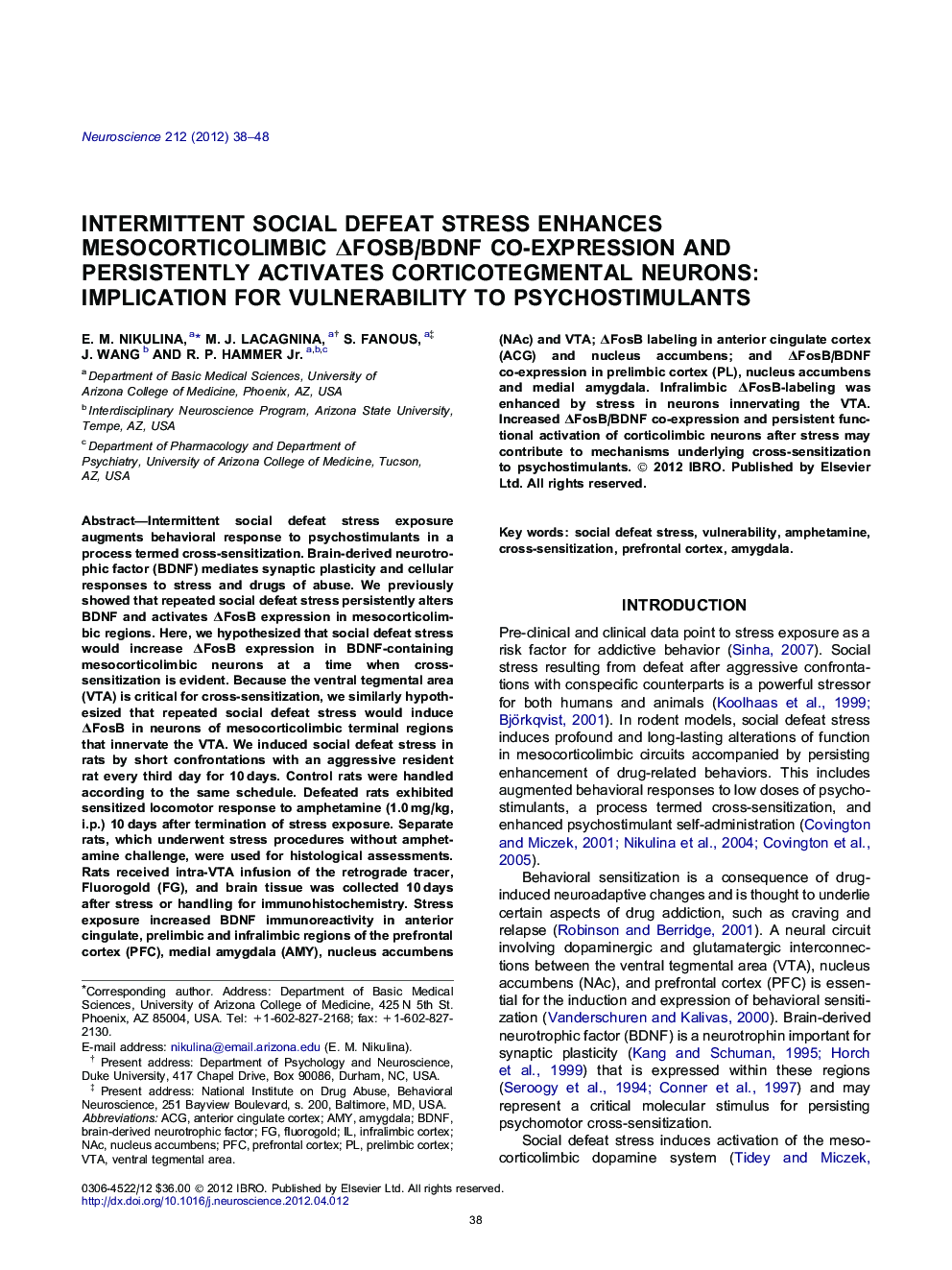| Article ID | Journal | Published Year | Pages | File Type |
|---|---|---|---|---|
| 4338428 | Neuroscience | 2012 | 11 Pages |
Intermittent social defeat stress exposure augments behavioral response to psychostimulants in a process termed cross-sensitization. Brain-derived neurotrophic factor (BDNF) mediates synaptic plasticity and cellular responses to stress and drugs of abuse. We previously showed that repeated social defeat stress persistently alters BDNF and activates ΔFosB expression in mesocorticolimbic regions. Here, we hypothesized that social defeat stress would increase ΔFosB expression in BDNF-containing mesocorticolimbic neurons at a time when cross-sensitization is evident. Because the ventral tegmental area (VTA) is critical for cross-sensitization, we similarly hypothesized that repeated social defeat stress would induce ΔFosB in neurons of mesocorticolimbic terminal regions that innervate the VTA. We induced social defeat stress in rats by short confrontations with an aggressive resident rat every third day for 10 days. Control rats were handled according to the same schedule. Defeated rats exhibited sensitized locomotor response to amphetamine (1.0 mg/kg, i.p.) 10 days after termination of stress exposure. Separate rats, which underwent stress procedures without amphetamine challenge, were used for histological assessments. Rats received intra-VTA infusion of the retrograde tracer, Fluorogold (FG), and brain tissue was collected 10 days after stress or handling for immunohistochemistry. Stress exposure increased BDNF immunoreactivity in anterior cingulate, prelimbic and infralimbic regions of the prefrontal cortex (PFC), medial amygdala (AMY), nucleus accumbens (NAc) and VTA; ΔFosB labeling in anterior cingulate cortex (ACG) and nucleus accumbens; and ΔFosB/BDNF co-expression in prelimbic cortex (PL), nucleus accumbens and medial amygdala. Infralimbic ΔFosB-labeling was enhanced by stress in neurons innervating the VTA. Increased ΔFosB/BDNF co-expression and persistent functional activation of corticolimbic neurons after stress may contribute to mechanisms underlying cross-sensitization to psychostimulants.
► Episodic social defeat induced prolonged mesocorticolimbic ΔFosB/BDNF co-expression. ► Episodic defeat persistently enhanced ΔFosB in infralimbic corticotegmental neurons. ► Molecular changes in defeated rats occurred parallel with amphetamine sensitization. ► These findings may contribute to mechanisms of psychostimulant cross-sensitization.
